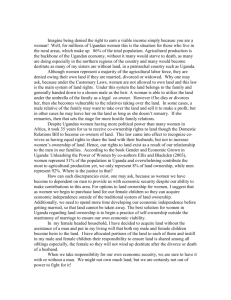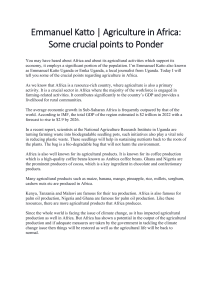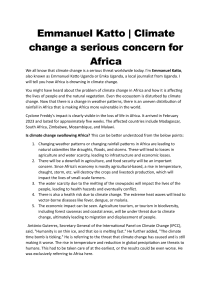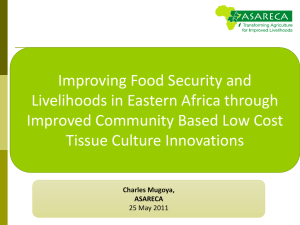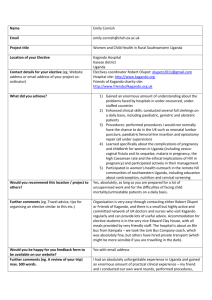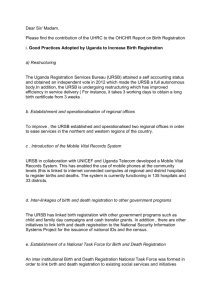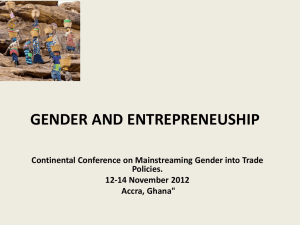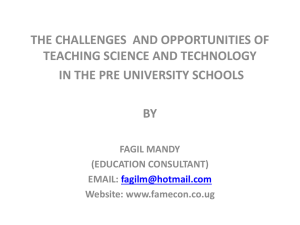Attached file
advertisement
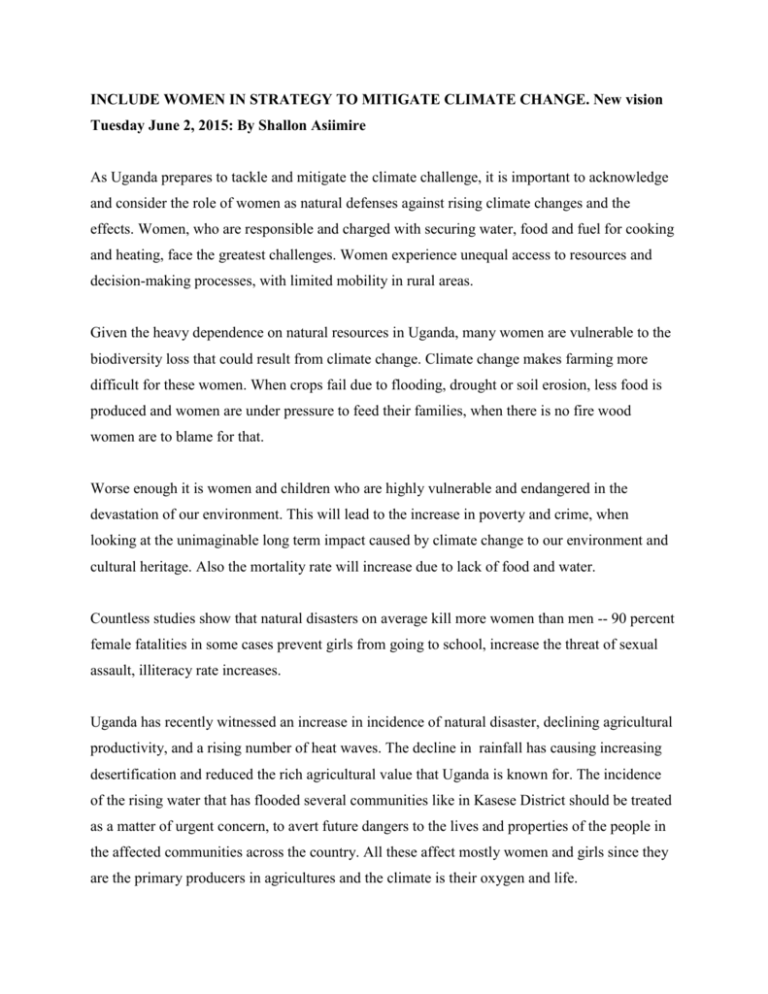
INCLUDE WOMEN IN STRATEGY TO MITIGATE CLIMATE CHANGE. New vision Tuesday June 2, 2015: By Shallon Asiimire As Uganda prepares to tackle and mitigate the climate challenge, it is important to acknowledge and consider the role of women as natural defenses against rising climate changes and the effects. Women, who are responsible and charged with securing water, food and fuel for cooking and heating, face the greatest challenges. Women experience unequal access to resources and decision-making processes, with limited mobility in rural areas. Given the heavy dependence on natural resources in Uganda, many women are vulnerable to the biodiversity loss that could result from climate change. Climate change makes farming more difficult for these women. When crops fail due to flooding, drought or soil erosion, less food is produced and women are under pressure to feed their families, when there is no fire wood women are to blame for that. Worse enough it is women and children who are highly vulnerable and endangered in the devastation of our environment. This will lead to the increase in poverty and crime, when looking at the unimaginable long term impact caused by climate change to our environment and cultural heritage. Also the mortality rate will increase due to lack of food and water. Countless studies show that natural disasters on average kill more women than men -- 90 percent female fatalities in some cases prevent girls from going to school, increase the threat of sexual assault, illiteracy rate increases. Uganda has recently witnessed an increase in incidence of natural disaster, declining agricultural productivity, and a rising number of heat waves. The decline in rainfall has causing increasing desertification and reduced the rich agricultural value that Uganda is known for. The incidence of the rising water that has flooded several communities like in Kasese District should be treated as a matter of urgent concern, to avert future dangers to the lives and properties of the people in the affected communities across the country. All these affect mostly women and girls since they are the primary producers in agricultures and the climate is their oxygen and life. The impacts of climate change are divestating. They include constant temperature rise, excessive and destructive rainfall, deep gully caused by heavy flooding, desertification leading to low agricultural yield, drying up of water bodies, intense agricultural land use, over grazing, bush burning, extraction of fuel wood and biotic, among other elements of environmental degradation. Preparing and assisting the "at risk" regions to adapt to climate change is paramount to safeguard human life, biodiversity, and food security. After all, you are what you eat, so is the climate. We must empower women, sensitize them on effects of climate changes, let them be aware of what causes climate change so as to mitigate the climate change issues and always remember that women exist in all the projects we intend to do and get them involved in the mitigation process of climate change. Districts should work closely with the Climate Change Unit, Ministry of Water and Environment and other government agencies to ensure that women are trained, sensitized and more so consulted in the decisions are they are to make. This is because women often have a strong body of knowledge and expertise that can be used in climate change mitigation, disaster reduction and adaptation strategies. Furthermore, women’s responsibilities in households and communities, as bailiffs of natural and household resources, positions them well to contribute to livelihood strategies adapted to changing environmental realities.
